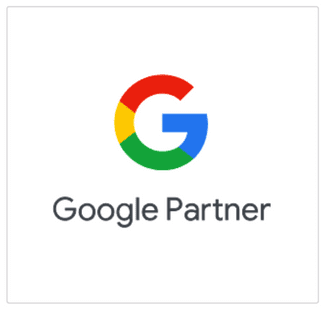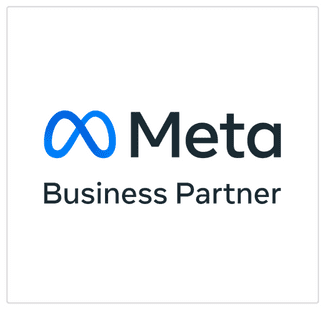As a mix of paid advertising and brand marketing, Performance Marketing encompasses promotional campaigns where payment is made only when a desired action is completed such as getting a lead, making a sale, making a booking or completing an article or guide download.
This method is a winner for a business or entrepreneur because it allows them to organize campaigns in a strategic, high ROI and performance-based way.
He can choose the right channel for his audience, the type of message and the format that best showcases his products and services. By paying only when a certain action is completed, a marketer can feel confident that his money is well spent because he already sees the result of his investment.
What is Performance Marketing?
Performance Marketing is the name given to online campaigns in which you pay marketing companies or advertising platforms for the results you get, such as clicks or conversions.
Unlike traditional and organic marketing, performance marketing is specifically used to generate certain actions, track and measure those actions, while tracking the ROI of each campaign or promotion activity carried out.
So while large companies can spend huge amounts on branding, most small and medium sized companies need to focus on the bottom line to remain profitable.
And that’s what Performance Marketing does: it puts the control of promotion in the digital space back in your hands. You’re the one who sets the goal, whether it’s a sale, a lead or a website visit, and then you pay when it’s achieved.
What’s new in Performance Marketing?
In other words, what is so special about performance marketing? Well, the fact that it empowers the advertiser, they can trust that their marketing budget is only being spent on successful campaigns.
In addition, the success rate of performance marketing campaigns is generally higher because all campaigns are highly targeted.
If you choose to work with a Performance Marketing agency, your campaigns will definitely be handled by specialists who will make data-driven decisions and optimize campaigns solely based on results, thus generating maximum potential from what Digital Marketing Performance stands for.

How to build a Performance Marketing strategy?
There are many different types of digital performance marketing channels and campaigns, so there is no general recipe for all businesses. However, there are a number of key steps to building a performance marketing strategy, regardless of your audience or industry.
Step 1: Setting the campaign objective
Before you can measure the success of any campaign, it is important to have established campaign objectives. These can be considered the basis of performance marketing and many platforms require you to do this step before creating ads or campaigns.
Here is a list of the most popular digital marketing goals:
- Brand awareness
- Website traffic
- Remarketing or retargeting
- Engagement
- Lead generation
- Sales
Step 2: Choosing digital channels
Diversifying the channels you use is a smart way to ensure that your campaign’s exposure spreads, increasing its chances of success.
Whether it’s active ads (Social Media Ads) or passive ads (Google Ads), choose campaigns and channels that are specialised for your chosen conversion type and where you are most likely to find your target audience.
By diversifying different social networks, for example, you can greatly increase the visibility of your campaign and expose it to a much wider audience.
Step 3: Create and launch your campaign
A large part of the effort for Performance Marketing is invested in creating campaigns. Here it is important to identify the target audience, understand their needs and desires and create messages and images that will attract their attention.
The better you understand and know your target audience and how your product or service can appeal to them, the easier it will be to create the best campaigns.
And, of course, you need to pay close attention to the technical details of your campaigns, such as ad sizes, ad character limits, or acceptable image types.
Step 4: Campaign measurement and optimization
The real work starts after launch, because a Performance Marketing campaign starts generating data the moment it is activated.
At this stage, it is up to you or the Performance Marketing agency you work with to optimise campaigns for performance across all channels used.
To do this, track analytics and metrics to determine which traffic sources are performing the best, then allocate your budget accordingly.
In addition, use campaigns not only to increase sales, but also to identify the best channels, audiences and campaign targets to increase ROI.
Step 5: Watch out for potential pitfalls!
As with any marketing campaign, there are some common challenges and pitfalls that can occur in performance marketing. These can include:
- Compliance issues
- Privacy regulations
- Traffic bots
One way to mitigate these risks from the outset is to choose high-quality advertising networks and platforms where issues such as brand safety and data privacy are handled responsibly and reliably.
What are the most popular Performance Marketing services offered by an agency?
Thinking about, setting up and optimising Performance Marketing campaigns is not an easy job and definitely requires time, effort and expertise.
Therefore, the most efficient option for your budget and time is to turn to an agency that offers Digital Performance Marketing services.
And in this case, re7consulting Romania is a Performance Marketing agency that helps your business reach its potential.
Below we have outlined the two main types of Performance Marketing services and how your business can benefit by implementing them with a specialised agency.
Social Media Ads
This form of Performance Marketing uses social media networks to gain traffic and increase brand visibility.
Social media campaigns are achieved by creating digital content presented on Facebook, LinkedIn, Instagram or TikTok.
Using different ad formats and pull options, you can reach potential customers while measuring KPIs such as engagement, click-through rate (CTR) and ROI.

A wide variety of brands can find and access their audience on social channels, and using these platforms results in increased conversions for your business and your specific business metrics.
The first step is to determine where the bulk of your audience is located.
LinkedIn is mainly aimed at professionals and is ideal for businesses targeting the B2B area.
On LinkedIn your brand can grow by broadening your customer base, promoting your expertise and projects.
Due to its clearly defined specificity in the professional area, LinkedIn is essential for companies with B2B activities, and the platform provides numerous tools specialized in generating leads, attracting potential customers and maintaining relationships with current customers.
Choose LinkedIn Ads campaigns if you want to:
- Generate more qualified leads for a B2B business
- Build effective recruitment campaigns
- Increase business or personal brand awareness
The main disadvantage with LinkedIn campaigns is the high price per click, so to avoid financial losses it is recommended to work with a specialist to set up, track and improve the performance of your campaigns.
TikTok generally attracts younger user groups, while Facebook and Instagram have a diverse and massive user base.
TikTok Ads are currently not as popular as Instagram or Facebook and therefore represent an opportunity for companies with younger target audiences.
Campaigns on TikTok are based on short, engaging vertical videos and can help a brand gather more leads, increase sales or attract visitors to their website.
Facebook is one of the most popular platforms for Social Media Ads.
Ads can run on NewsFeed, Messenger, Instagram, Audience Network or in all locations.
The platform provides complex performance measurement tools through Facebook Business Manager and supports campaign optimization by allowing you to test different ad groups, copy or visuals.
Instagram is considered the platform for creatives, artists and lifestyle content creators.
Inspirational and aesthetically oriented, Instagram is the place to be if you want to share positive experiences and visual content with your audience.
Campaigns on Instagram can be shared in your Feed, Stories or Reels. As a format, you can choose photo, video or carousel ads to add more chapters to your story.
Statistics show that Instagram has a 70% higher engagement rate than Facebook, with users interacting by liking, commenting or clicking on posts. The platform is constantly changing, however, and the pace at which algorithms and directions change can seem dizzying.
The experience and knowledge gained over the years helps specialists to adapt quickly to changes and react correctly to potential crisis situations.
That’s why it’s advisable to work with a Performance Marketing agency to ensure your budget is carefully managed and your business grows.
Googe Ads
Passive advertising on Google Ads ensures you acquire new customers and increase your visibility. One of the most popular types of Performance Marketing campaigns targets Google Search users when they search for words relevant to your business.
The aim of the advertisement is to persuade them to visit your website to purchase the products or services they need.

Google Ads advertising also includes Display Ads (banner ads), Video Ads (ads displayed on YouTube and partner platforms), Shopping Ads or Gmail Ads.
The support of a Performance Marketing agency in this case is essential for a safe, sustainable growth of your campaigns and your business. The experience and creativity of the agency’s specialists guarantees you exceptional results, advice and evaluation reports so that you understand and learn more about your target audience.
As the advertising industry has evolved and technology has developed over the years, the methods by which a business reaches the attention of its customers has changed significantly.
Today, in most cases, the right use of data and its analysis gives rise to competitive advantage, based primarily on the performance marketing agency’s ability to leverage primary data from the online environment and the ability to tailor content to customer categories or other interested groups.







